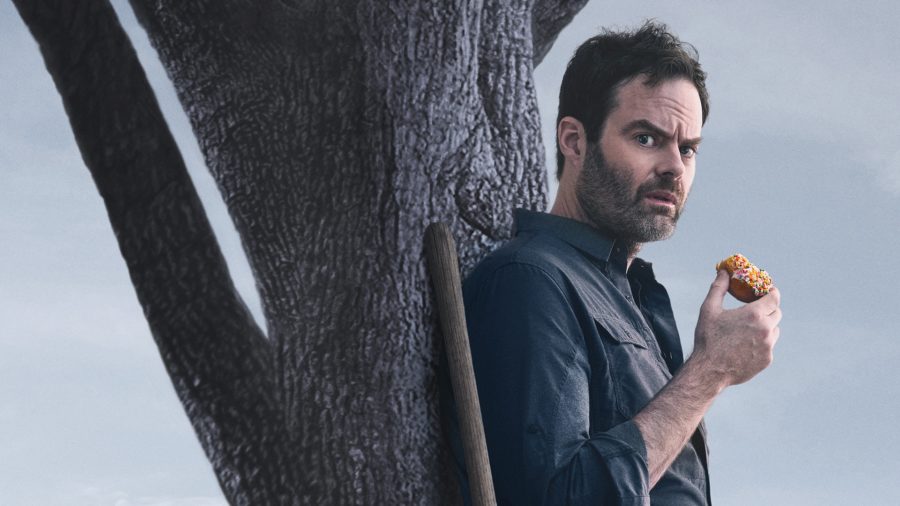Opinion: You should be watching ‘Barry’
The show is one of the best offerings on television in recent years
Rarely does any form of media masterfully intertwine drama, comedy and action with an impressive pacing and a balanced tone. HBO’s “Barry” does all the above and more, in the confines of 30-minute episodic storytelling and tops it off with a tinge of surrealism.
“Barry” follows the story of Barry Berkman (Bill Hader), a depressed hitman who moves to Los Angeles to carry out a hit but inadvertently falls in love with the local acting scene at the dismay of his criminal handler Monroe Fuches (Stephen Root).
Berkman joins an acting class taught by Gene Cousineau (Henry Winkler) and becomes close to his peers – particularly Sally Reed (Sarah Goldberg) – but as the story unfolds and he becomes more engaged with this new side of his life, Berkman’s criminal activities come dangerously close to colliding and causing a catastrophe.
Without spoiling too much, the beauty of “Barry” is that it divorces itself from its initial premise without hesitation. The show is currently airing its fourth and final season and, when compared side-by-side to the first, is unrecognizable.
The true core and moral of the story is not about Barry’s circumstances or the plot but about the character itself. Before becoming a hitman, Berkman was a U.S. Marine and vet of the war in Afghanistan who was discharged over an occurrence that cannot be described without spoiling a plot line. Although details are sparse in the show’s current phase, his upbringing even before joining the military was abnormal.
No matter how much the show evolves in character roster, environment or plot, it is an examination of Berkman’s violent and psychopathic tendencies converging with his desire to lead a normal life, something that the show makes clear over and over again that Berkman is fundamentally incompatible with.
And aside from being thematically rich and providing depth to its characters, “Barry” is a masterclass at evoking emotion from the audience.
When it needs to be, the show is funny. Not funny in a way that makes the audience think “haha” or exhale slightly, funny like belly-laugh-and-pause-the-show hilarious. Which makes sense since “Barry” was co-created, co-written and directed by Hader, one of the best talents from “Saturday Night Live.”
The comedic elements of the show are where the aforementioned surrealism shines. Cops are cartoonishly incompetent, criminals are fun-loving goobers and almost every scene’s dialogue is laced with an absurd exchange.
But when it needs to be serious, the show commits to an intensity like no other. Most of the characters on “Barry” are a tad unhinged – which can be chalked up to the show’s commitment to being absurd – allowing character moments and scenes that enable the actors to go unchained.
The show also frequently uses dreamlike visuals and hallucinations which are visually gorgeous and employ ominous auditory effects for a full “what is even happening?” effect.
While it can be funny, “Barry” is a loud, violent and dramatic show where nothing is off-limits and any given character is a scene away from killing, being killed or doing something completely outrageous. This introduces another aspect of storytelling that the show excels at, action.
Full disclosure, “Barry” is not the type of show to end every episode with a massive firefight and CGI explosion.
But when tensions boil over and the bullets start flying, the action sequences are completely engaging because of how real they are. Bullets are loud, bodies drop like bags of potatoes and there is a real sense of danger and adrenaline inserted into the show’s action.
And at the same time, the absurdity is still there. An action scene can be scarily real, intense and funny within the span of seconds, all of which is encapsulated by the spoiler-free scene below.
A true microcosm of “Barry” is the season two episode titled “ronny/lilly.” The Emmy-nominated episode, which the Los Angeles Times dubbed as “bonkers,” seamlessly brings together all of the aspects that make the show so good into one episode whose plot is almost entirely detached from the main arc and is never brought up again.
If a potential viewer is weighing on starting “Barry,” “ronny/lilly” is almost guaranteed to garner their interest without spoiling the main plot.
“Barry” is in its last season and only four episodes remain to be aired. With each season only being 30 minutes per episode and eight episodes per season, the fever dream of a show is a captivating must-watch that scratches an itch no other form of media comes close to achieving.



